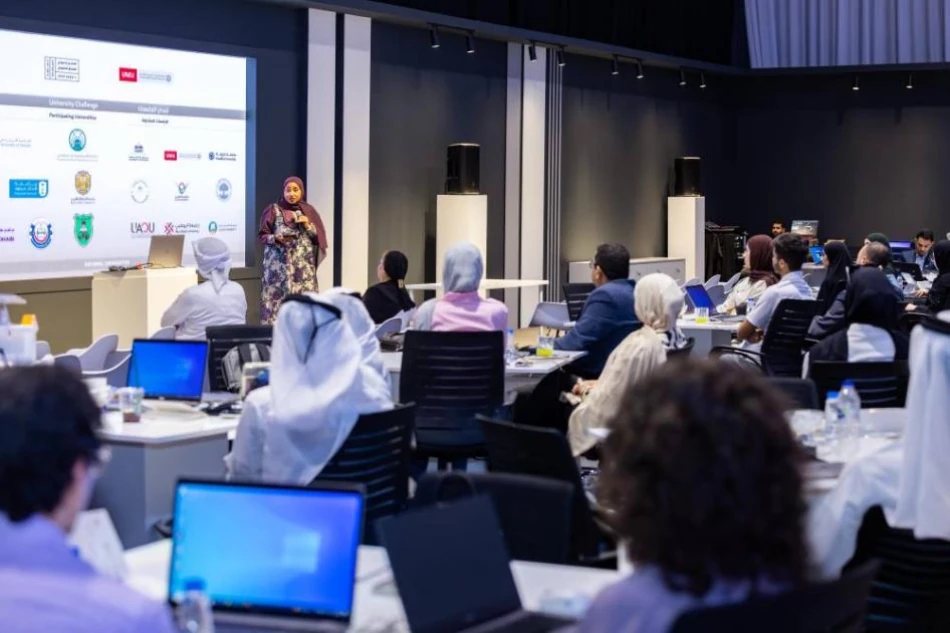
University Challenge 2025 Kicks Off with 25 Competing Teams
UAE Universities Launch Innovation Challenge to Tackle Global Food Security Crisis
Twenty-five university teams from across the Middle East are competing in a groundbreaking challenge that positions the UAE as a regional hub for youth-driven solutions to critical global issues. The fourth edition of the Universities Challenge, launched Tuesday as part of the International Government Communication Forum 2025, focuses specifically on food security—a strategic priority that aligns with the UAE's broader economic diversification and sustainability goals.
Strategic Focus on Food Security Reflects Regional Priorities
The decision to center this year's competition on food security underscores the growing recognition across Gulf states that agricultural independence and sustainable food systems are national security imperatives. The UAE, which imports approximately 85% of its food, has been aggressively pursuing food security initiatives through its National Food Security Strategy 2051.
This university challenge represents a shift toward crowdsourcing innovation from the region's brightest minds, rather than relying solely on government-led initiatives or foreign expertise. By engaging students in developing communication strategies around food sustainability, the competition creates a pipeline of locally-trained talent equipped to address one of the region's most pressing vulnerabilities.
Regional Academic Powerhouses Join Forces
The participation roster reads like a who's who of Middle Eastern higher education, spanning from local UAE institutions including Khalifa University and the American University of Sharjah, to prestigious regional players like Sultan Qaboos University in Oman and King Saud University in Saudi Arabia. The inclusion of universities from Jordan, Egypt, and across the Gulf signals an emerging model of regional academic collaboration.
This cross-border educational partnership mirrors similar initiatives in other innovation hubs. Singapore's university challenge programs have successfully generated commercially viable startups, while Israel's academic competitions have produced defense and agricultural technologies later adopted nationally.
Government Integration Creates Real-World Impact
The competition's structure—with judges from the Ministry of Climate Change and Environment, Sharjah Municipality, and regional agricultural institutions—ensures that winning concepts have clear pathways to implementation. This government-academia integration represents a more sophisticated approach than typical academic exercises.
The involvement of Dr. Abdullah Al Saadi from the College of Agriculture at Al Dhaid University and Hajar Al Ketbi from the Ministry of Climate Change and Environment suggests that viable solutions could be fast-tracked into national policy frameworks or pilot programs.
Technology-Driven Solutions for Ancient Challenges
By emphasizing smart applications and modern technology, the challenge reflects the UAE's broader strategy of leveraging its technological infrastructure to solve traditional problems. The focus on sustainable alternatives and cross-sector partnerships aligns with global trends toward agtech innovation and vertical farming—sectors where the UAE has already made significant investments.
The competition's emphasis on raising community awareness through creative campaigns also addresses a critical gap: even the most innovative food security technologies fail without public buy-in and behavioral change.
Investment and Market Implications
For investors and policymakers, this competition serves as an early indicator of emerging talent and innovative approaches in the food security space. Historically, university challenges have produced concepts that later attract venture capital or government funding. The UAE's track record of commercializing academic research through initiatives like the Mohammed bin Rashid Innovation Fund suggests that promising solutions emerging from this competition could see rapid scaling.
The regional scope also positions the UAE as a coordinator for Gulf-wide food security initiatives, potentially creating opportunities for cross-border agricultural projects and technology sharing agreements that could reshape the region's approach to food independence.
Most Viewed News

 Omar Rahman
Omar Rahman






